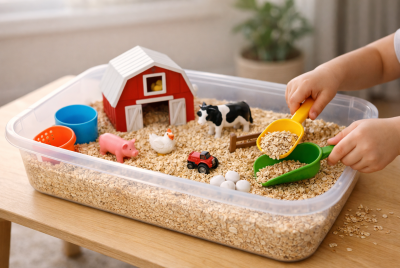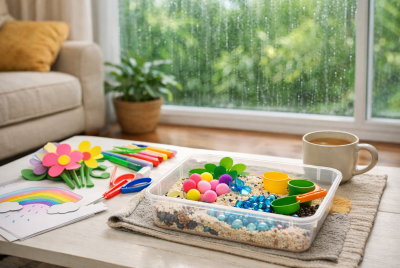Jewish Parents vs Asian Parents: A Comparative Look at Parenting Styles
We may earn a commission for purchases made using our links. Please see our disclosure to learn more.
One of those subjects that always seems to spark conversation is parenting. Everybody has a different viewpoint, and things become much more intriguing when culture is included. Consider Asian and Jewish parents, for instance. Though they do things slightly differently, they are both renowned for being highly involved in their children’s lives. Let’s dissect it and see the differences between jewish parents vs asian parents as well as the areas where they are quite similar.
The Cultural Foundations of Parenting Styles
First things first: culture is the foundation of every parenting approach. Jewish parents’ methods are shaped by their Jewish background, which emphasizes moral principles, community, and education. Being a decent person and giving back to the community are frequently emphasized when growing up in a Jewish home. Conversely, Asian parents, particularly those with Chinese, Korean, or Japanese ancestry, frequently base their parenting on the value placed on academic achievement and respect for elders. They firmly believe that family reputation and hard labor go hand in hand.
Education: A Shared Priority
If there’s one thing that both Jewish and Asian parents have in common, it’s the emphasis on education. Jewish parents really push their kids to strive for academic excellence – after all, education has been a big part of their culture for centuries. They value knowledge not just for job success, but because it’s seen as a way to enrich the mind and contribute to society. And then there are Asian parents, whose belief in the power of a good education is practically legendary. In many Asian families, success in school isn’t just expected; it’s a matter of pride. So while both cultures love a good report card, Jewish parents might also value creative thinking and debate, while Asian parents might be more focused on the grades.
Parenting Approach: Love vs. Discipline
This is where things start to change a bit. Jewish parents are renowned for their love. They don’t hesitate to express their support and say “I love you.” Because of the relationship’s openness, children feel free to express themselves, even if it occasionally means disagreeing with their parents. Jewish parents urge their children to express their opinions and appreciate dialogue. However, Asian parents are more likely to emphasize punishment. They think that respect for authority is essential and that love is demonstrated by deeds rather than words. Asian families simply function as a unit, and Asian children are raised to be submissive, sometimes without question.

The Importance of Respect
Although respect is fundamental to both Asian and Jewish cultures, it manifests itself differently in parenting. For Jewish parents, mutual understanding is the foundation of respect. They encourage their children to speak up and express their opinions, but they also demand respect. Children frequently challenge their parents in Jewish households, particularly when it comes to important choices. In contrast, Asian parents have a more hierarchical stance when it comes to respect. Respect is a given in many Asian households, and children are supposed to show their parents deference. It’s not exactly encouraged to question authority, and children are instilled with a feeling of obligation from an early age.
Family Ties: Close-Knit Communities vs. Hierarchical Units
Jewish culture has very strong family bonds, however they differ slightly from Asian ones. Jewish families frequently stress the value of being involved in the community and making a contribution to something greater than the family. Jewish children are therefore encouraged to interact with the larger Jewish community as they grow up, rather than concentrating only on their immediate family. In contrast, Asian households tend to place a greater emphasis on family honor. Every member’s behavior affects the entire family, which is viewed as a unified entity. The success or failure of one family member can have a significant effect on how the entire family is viewed in many Asian homes.
The Pressure to Succeed: A Double-Edged Sword
Let’s talk about pressure. Both Jewish and Asian parents put a lot of expectations on their kids, but the source of that pressure differs a bit. Jewish parents want their kids to do well in life, not just academically but in all aspects of personal growth. There’s a strong focus on being a good person and helping others. Asian parents, however, tend to place more intense pressure on academic and professional success. In some cultures, the idea of “failure” isn’t just about letting yourself down – it’s about letting the whole family down. It’s the kind of pressure that can make you feel like you’re carrying the weight of the world on your shoulders.
Career Choices: Embracing Diversity vs. a Defined Path
When it comes to career choices, Jewish and Asian parents don’t always see eye to eye. Jewish parents generally want their kids to be happy with what they do, and they encourage pursuing careers that are personally fulfilling. While doctors, lawyers, and businesspeople are highly respected in Jewish culture, there’s also room for creative professions. Asian parents, however, tend to be a little more specific about career choices. In many Asian cultures, careers in medicine, law, or engineering are seen as the gold standard. The pressure to pursue one of these stable, high-status careers can be intense, and deviating from this path might lead to disappointment.
The Role of Guilt in Parenting
Oh, guilt. It’s something both Jewish and Asian parents know how to wield. In Jewish households, guilt is often used to teach kids about responsibility and the impact of their actions. It’s not always a bad thing – it’s about making sure the child understands that their actions affect those around them, particularly in the community. Asian parents also use guilt, but it’s often tied to family duty. In many Asian cultures, children are taught that their actions reflect on the family as a whole, and the idea of letting down your parents is something that weighs heavily. Guilt is used to maintain a sense of duty and to remind kids of their obligations to their family.
Social Expectations: Group vs. Individual Identity
Jewish and Asian cultures approach social expectations in different ways. Jewish parents are big on individuality. They encourage their children to think for themselves and express their own ideas. They celebrate uniqueness, even if that means their kids are a little different from the norm. In contrast, Asian parents often place more emphasis on group identity. The collective good is prioritized over individual desires, and children are raised with the understanding that their actions will impact their family’s reputation. It’s all about maintaining harmony and making sure everyone is working toward a shared goal.
Food and Traditions: A Taste of Culture
Food is more than just nourishment in both Jewish and Asian cultures – it’s an important part of family tradition. Jewish parents often encourage their children to participate in preparing traditional meals, especially during holidays like Passover or Hanukkah. It’s a way of connecting with their heritage and passing down family traditions. In many Asian families, food is equally central. Parents teach their children how to cook traditional dishes, and meals are often a communal experience. Whether it’s a big family dinner or a quiet meal at home, food is a way to bond and keep cultural practices alive.
Conflict Resolution: Debate vs. Compliance
When conflicts arise, Jewish and Asian parents handle things differently. Jewish parents tend to encourage debate and discussion. If there’s a disagreement, it’s not uncommon for kids to be involved in the conversation, expressing their opinions and challenging their parents’ views. This approach helps children develop critical thinking skills and learn how to resolve conflicts through communication. Asian parents, on the other hand, might avoid open conflict. There’s often an expectation that children will comply without question, and silence is sometimes seen as the best way to resolve issues. While this can create less tension in the moment, it also means that feelings might get bottled up.
Parenting Expectations: Open Communication vs. Silent Obedience
Communication is a big difference between Jewish and Asian parents. Jewish parents value open communication with their children. They want their kids to feel comfortable discussing anything, whether it’s their schoolwork or their personal lives. This open dialogue builds trust and helps foster a close relationship. Asian parents, while still loving and caring, might be more inclined to expect obedience over communication. They might not always ask for their children’s input, and in some cases, they expect their kids to follow directions without much back-and-forth.
Discipline: Freedom vs. Control
Discipline is handled differently in Jewish and Asian households. Jewish parents tend to give their kids a little more freedom to make mistakes and learn from them. The focus is on guidance and helping children grow, not on strict control. There’s a lot of trust placed in the child’s ability to make the right choices. Asian parents, on the other hand, may lean more toward control. They believe that strict discipline is necessary to guide their children on the right path. It’s not about stifling creativity but about ensuring that kids stay focused on what’s important.
Parental Involvement: Active Participation vs. Hands-Off Authority
When it comes to parental involvement, Jewish parents are usually all in. They’re actively involved in their kids’ lives, whether it’s attending school events, volunteering, or making sure their children are engaged in community activities. They’re invested in their children’s success and well-being. Asian parents might adopt a more hands-off approach in certain areas. They trust their children to take care of themselves in social situations but remain deeply involved when it comes to academics and career choices.
The Impact of Parenting Styles on the Next Generation
So, how do these parenting styles shape the next generation? Jewish parents tend to raise kids who are independent, articulate, and confident in their beliefs. Their children are often encouraged to take risks, think for themselves, and stand up for what they believe in. Asian parents, on the other hand, raise children who are disciplined, hardworking, and deeply committed to family. These kids tend to have a strong sense of responsibility and a high level of determination when it comes to achieving success.

Helpful Products for Jewish and Asian Parents: Enhancing Family Life and Education
1. Time Timer
Understanding the concept of time can be challenging for young children. The Time Timer offers a visual representation of elapsed time, helping children grasp this abstract concept. It’s beneficial for managing transitions between activities, such as study sessions or family meals.
2. Beyond Junior Y Chair by Abiie
The Beyond Junior Y Chair is a versatile high chair made from European beech wood, designed to grow with your child. It features adjustable heights and footrests, and its design allows it to convert into an adult dining chair, making it a lasting addition to your home.
3. Kasa Indoor Smart Security Camera
For parents seeking peace of mind, the Kasa Indoor Smart Security Camera offers crisp video quality, night vision, motion detection, smartphone compatibility, and two-way audio. It’s also compatible with Alexa, allowing for easy control.
4. 7 A.M. Enfant Stroller Blanket
Keeping your child warm during colder months is essential. The 7 A.M. Enfant Stroller Blanket is a weatherproof, zip-up cocoon that attaches easily to most strollers. Praised for its effectiveness in keeping toddlers warm, it’s a valuable investment for city parents facing harsh winters.
5. Frida Baby Control The Flow Bath Rinse Cup
Bath time can be challenging, but the Frida Baby Control The Flow Bath Rinse Cup makes it easier. Its design allows parents to wash their child’s hair and body with ease, featuring an easy-grip handle and a removable rain shower.
6. Ubbi Retractable On-the-Go Bag Dispenser
For parents on the move, the Ubbi Retractable On-the-Go Bag Dispenser is a convenient accessory. It attaches to your diaper bag and dispenses bags for quick and easy diaper changes, making it a must-have for new parents.
Integrating these products into your family’s routine can enhance cultural awareness, promote educational growth, and ensure safety, creating a rich tapestry of traditions that honor both Jewish and Asian heritages.
Cultural Differences in Parenting Styles: Jewish and Arab-Israeli Perspectives
Studies have shown that cultural background plays a crucial role in shaping parenting styles and attitudes toward discipline. For example, a study on preferred parenting styles among Jewish and Arab-Israeli emerging adults highlights the preference for authoritative parenting in both groups, indicating a desire for balanced responsiveness and high expectations. This research demonstrates the significance of nurturing relationships and setting clear boundaries in child-rearing across cultures. Similarly, a study on ethnicity’s effect on parenting styles and attitudes toward violence explores how Jewish and Arab mothers’ ethnic backgrounds influence their parenting approaches, providing valuable insights into generational transmission of parenting beliefs. These findings underline the importance of cultural nuances in parenting and how they shape child development.
Conclusion: The Balance of Both Worlds
In the end, both Jewish and Asian parenting styles have a lot to offer. Jewish parents emphasize individuality, education, and community, while Asian parents focus on discipline, respect, and family honor. Each culture has its strengths, and maybe the best approach is a mix of both. After all, balance is key when it comes to raising the next generation.
FAQs:
- What are the key differences between Jewish and Asian parenting? Jewish parents emphasize education, personal growth, and individuality, while Asian parents focus more on academic achievement, family honor, and respect.
- Do Jewish and Asian parents use guilt in parenting? Yes, both use guilt, but Jewish parents use it to teach moral responsibility, while Asian parents often use it to maintain family duty and honor.
- How do Jewish and Asian parents view education? Both cultures value education highly, but Jewish parents focus on intellectual growth and critical thinking, while Asian parents emphasize academic success as a way to secure a stable future.
- Are Jewish and Asian parents similar in terms of family ties? Yes, both Jewish and Asian cultures place a strong emphasis on family, but Jewish families value community involvement, while Asian families focus on family honor and reputation.
- How does discipline differ between Jewish and Asian parents? Jewish parents tend to offer more freedom and open communication, while Asian parents often rely on strict discipline and obedience.




